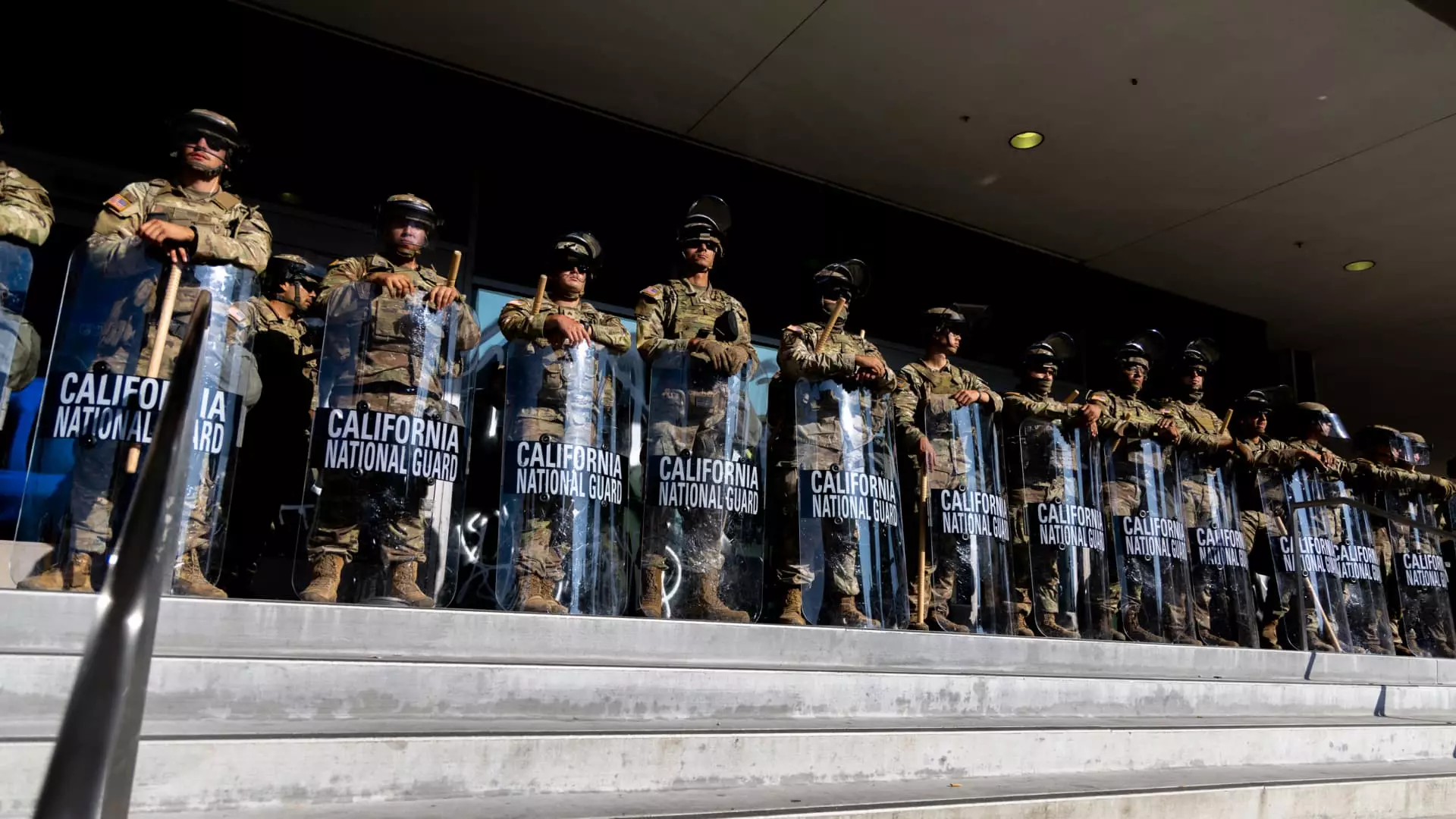The recent ruling by the 9th U.S. Circuit Court of Appeals, allowing President Donald Trump to maintain control over the National Guard troops stationed in Los Angeles, is not merely a political maneuver but a stark indication of the increasing erosion of state rights in favor of federal power. This unprecedented action marks a pivotal moment in the relationship between state governors and the President, igniting debates over the boundaries of federal authority, especially in times of social unrest. By circumventing California Governor Gavin Newsom’s authority, Trump’s administration taps into a dangerous precedent that could undermine the very foundations of our democratic processes and local governance.
Contextualizing the Deployment
In the backdrop of heightened tensions regarding immigration policies and civil rights, this deployment of the National Guard comes amid protests sparked by federal immigration raids. The court’s unanimous decision suggests that, while there may have indeed been volatile situations—protesters allegedly throwing objects and damaging federal property—such responses from citizens do not justify a military response. The history of civic unrest in America shows us that these flashpoints often reveal deep societal fissures that demand dialogue, not division. It is crucial to scrutinize whether deploying military forces epitomizes a necessary response to violence or an overreaction that further inflames already volatile circumstances.
The court highlighted the severity of the protests as justification for Trump’s actions. However, it is essential to question: what message does this send? Are we inviting a militaristic approach to civil dissent and political disagreement? Rather than fostering healthy civic engagement, we risk normalizing an adversarial relationship between citizens and their government. The increase in law enforcement responses to protests—often perceived as riotous—creates a climate of fear that may inhibit free expression.
The Narrow Interpretation of Presidential Power
While government interests must be protected, the ruling’s implication that presidents possess broad latitude in deploying troops raises red flags regarding executive power. The legal arguments rest on a narrow interpretation that suggests compliance in times of unrest—a slippery slope indeed. The contention that the president can act unilaterally in situations deemed by him as ‘dangerous’ undermines not only the federal-state balance but also introduces the risk of politicizing military deployments. The interpretation that any civil discord can equate to a ‘rebellion’ is alarmist at best and tyrannical at worst.
The dissenting voice of Governor Newsom calls attention to this encroachment on local authority. His argument that Trump’s actions usurped state power reflects the real concerns about political accountability that arise when federal forces are mobilized against citizens of a state. The core of liberal governance rests on the ability of local entities to respond to their unique challenges, and by overstepping these boundaries, the federal government risks alienating communities and squashing the nuance of political dialogue.
Reflection on the Implications
The ugliest implication of this ruling is its potential use as a template for future presidents seeking to exert similar authority without consideration for the implications for civil liberties. The argument laid out in the ruling echoes a disenfranchisement of the core values that underpin American democracy: the power of the states and the voice of the people. Today’s political environment can swiftly spiral into one where federal intervention becomes the norm in any scenario where discontent surfaces—particularly in Democratic-run states bearing leftist ideologies.
Moreover, the involvement of judges appointed during Trump’s presidency introduces a layer of skepticism regarding the objectivity of the ruling. The balance of power among branches of government is supposed to safeguard against abuses, but when judicial interpretations come under scrutiny due to partisan affiliations, the rule of law faces its own existential threat. The conversation about governance in America requires vigilance, not silence—otherwise, we risk spiraling into an era defined by deepening divisions and a relinquishing of our democratic principles.
In understanding the broader ramifications of this case and similar incidents, it is imperative to advocate for a proactive engagement that values negotiation and collaboration over unilateral control. What America needs now more than ever is not a nation armed against its citizens, but one ready to engage in meaningful conversations about rights, responsibilities, and the delicate balance between security and freedom.



Leave a Reply